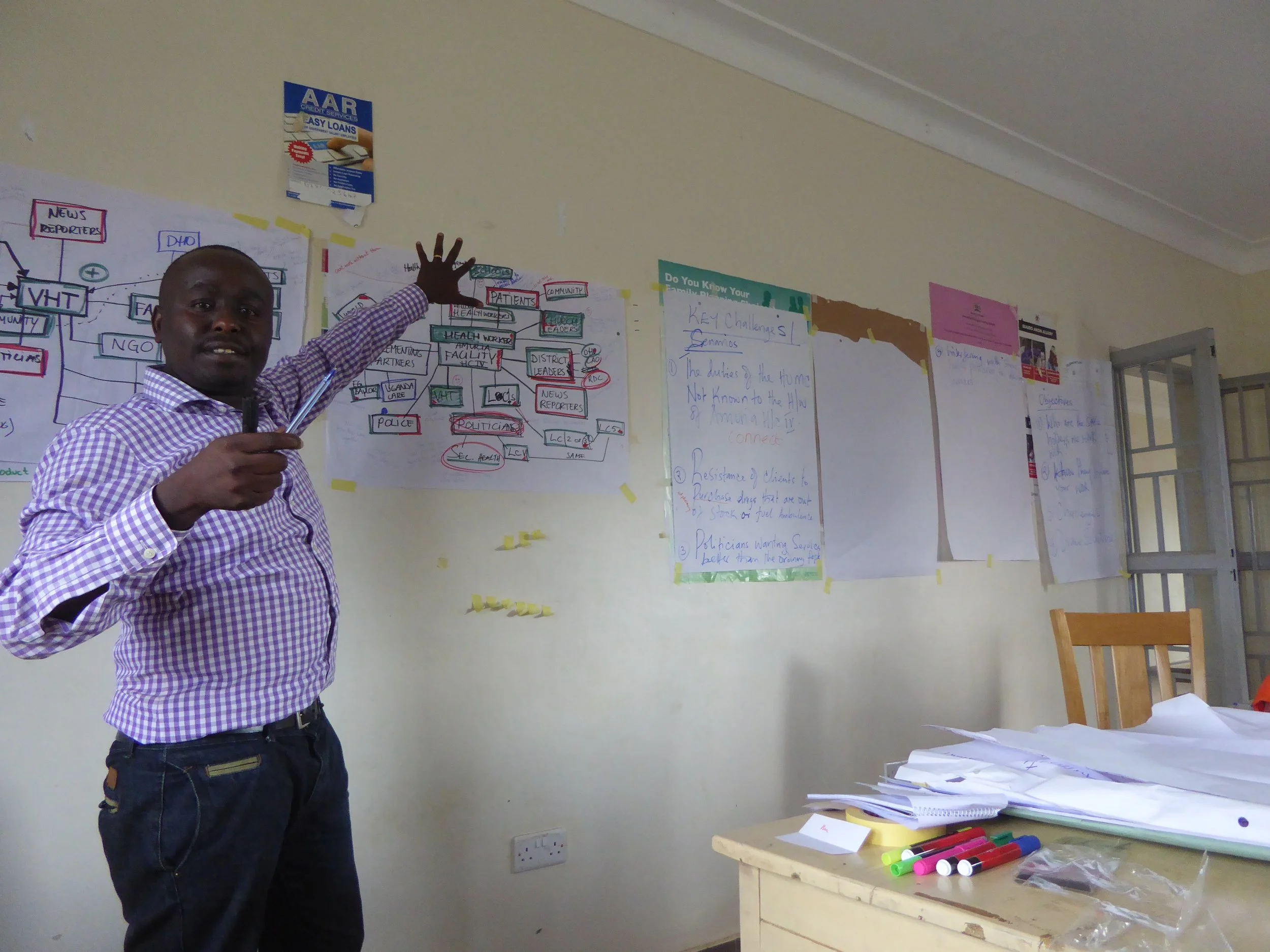At Pepal, one of our core principles is that innovation and new ways of thinking are crucial to achieving impact. Innovation creates change that can unlock new value, which is particularly important in low-resource healthcare settings, where small changes in how things are done have the potential to make a huge difference.
During our programmes, we challenge teams of participants from all over the world to work together to test and develop their leadership skills by designing social impact projects. These innovation projects implement and test new ideas on a small scale with limited resources.
The innovation projects challenge participants to do more with what there is and to adopt a growth mindset.
Our programmes also include knowledge sharing between incoming and outgoing cohorts. By sharing evidence, data and learnings between teams, each cohort is able to embed and build on previous teams innovations projects and implement new ideas at an even greater scale.
This model of innovation is best visualised as a funnel:
New innovation projects are created and tested during the ideation phase, which are then refined and tested on a larger scale during the proof of concept phase. Finally, after rounds of testing and data gathering, we then advocate for NGOs and governments to implement the idea once it has proved that it can create sustained change.
How does this model work in practice?
One example of how this model creates impact can be demonstrated through our work to improve adolescent sexual health outcomes in Rwenzori Region, Uganda.
In 2019, in partnership with Janssen Pharmaceutical Companies of Johnson and Johnson (Janssen) and Baylor College of Medicine Children’s Foundation-Uganda, we launched a programme to improve adolescent sexual health health outcomes in Kamwenge and Kitagwenda districts.
The Innovation teams were made up of adolescent peer leaders, healthcare workers, NGO staff and Janssen colleagues who spent several months testing innovations to improve access to and the quality of adolescent-friendly health services.
One of the teams designed a project to harness the influence of the church and the voices of its leaders to encourage more adolescents to access sexual reproductive health services. Through careful and sensitive planning, members of the team trained 16 church leaders on the importance of sexual health for adolescents and designed specific action plans so the churches leaders could share their new knowledge and spread awareness.
Although the project was disrupted by the Covid-19 pandemic and its restrictions, it showed great promise. Post-programme, there was a 20% increase in knowledge among adolescents (measured through a knowledge test), as well as an increase in adolescents accessing HIV testing.
Recently, two new teams have commenced projects drawing inspiration from the original innovation, both with the intention of creating a greater impact at a greater scale.
Team Kitagwenda identified an opportunity to scale-up the original project by working with leaders from different religious groups and Christian denominations. They also intend to organise sexual health out-reach clinics at new religious institutions they are work with.
Team Kamwenge identified challenges facing adolescents in hard-to-reach; services are even more difficult to access in rural areas. The team plans to focus their innovation project on improving knowledge and awareness of safe practices by training peer leaders and health workers, alongside the religious leaders.
What started as a small idea, using the influence of religious leaders as a way to spread awareness of adolescent sexual health services, has grown into three larger projects that are creating sustained change.





